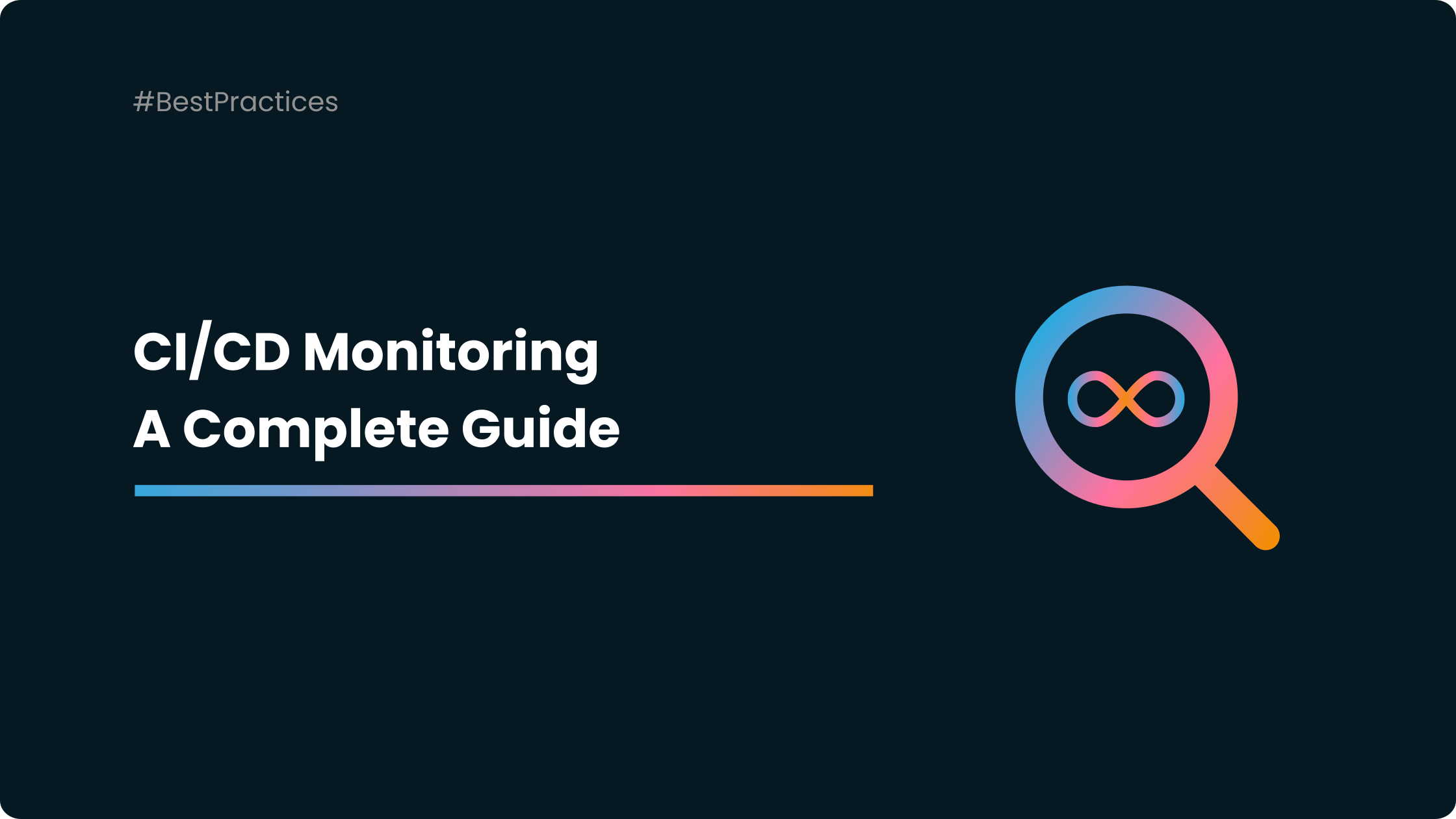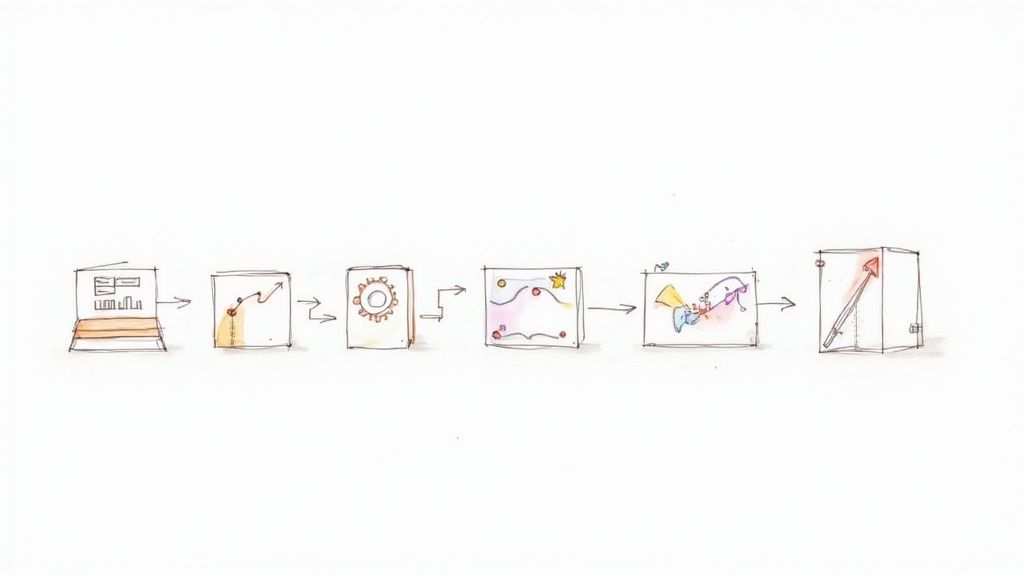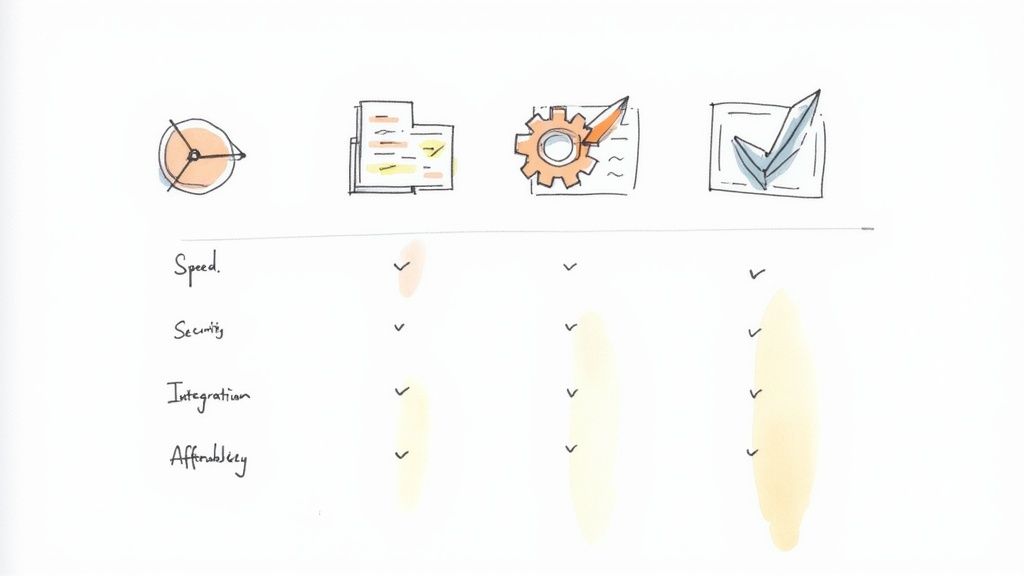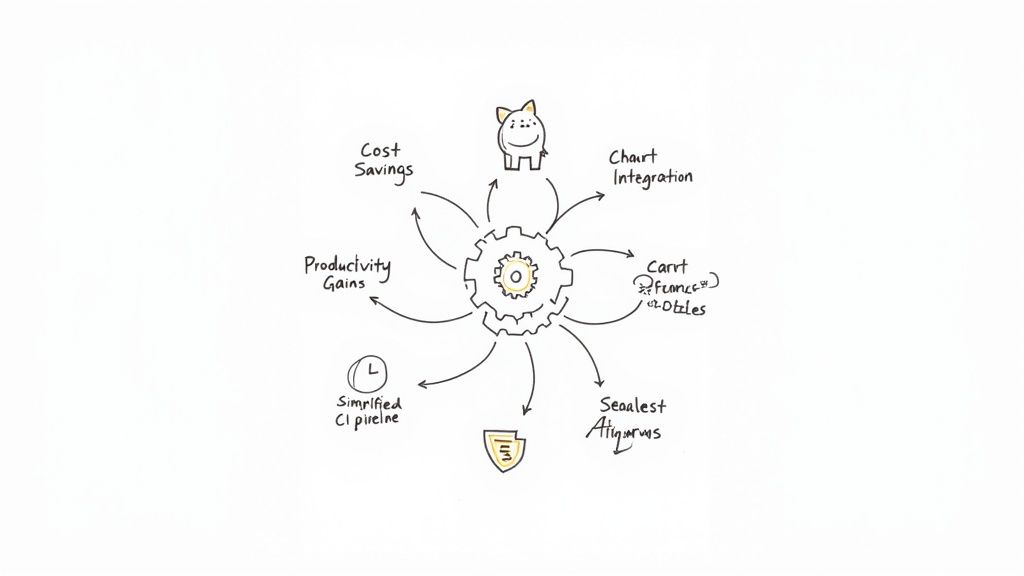CI/CD Monitoring - A Complete Guide
The world of CI/CD without monitoring is a bit of a fairy tale nightmare, right? Let's dive in this guide and discover why CI/CD monitoring should be as famous as the internet itself!

The Unsung Heroes of Software Development
Imagine a world where your software updates smoothly sail through a magical pipeline, only to be interrupted by mysterious gremlins causing chaos in the process.
That's the world of CI/CD without monitoring – a bit of a fairy tale nightmare, right? But fear not, in this guide, we'll arm you with the magic wand of CI/CD monitoring, transforming those gremlins into helpful elves ensuring smooth software deliveries.
Let's dive in and discover why CI/CD monitoring should be as famous as the internet itself!
What Does CI/CD Monitoring Mean?
CI/CD, or Continuous Integration and Continuous Deployment, is like a conveyor belt in a factory, constantly assembling and shipping out software updates.
Monitoring this process is akin to having a vigilant supervisor who oversees the assembly line, ensuring everything runs like a well-oiled machine.
It involves keeping an eye on each stage of the CI/CD pipeline, from code integration to deployment, making sure that any hiccups are spotted and resolved swiftly.
Why is CI/CD Monitoring Increasingly Crucial?
As software development races towards more automation and frequent updates, the complexity of CI/CD pipelines grows. Here's why monitoring them is no longer a luxury, but a necessity:
Early Problem Detection
Like a smoke detector in your house, CI/CD monitoring alerts you to issues before they turn into raging fires.
Efficiency Boost
It helps identify bottlenecks, much like finding the slowest conveyor belt in a factory, allowing you to speed up the entire process.
Quality Assurance
Monitoring ensures that only the finest software gets shipped, just like a quality inspector in a manufacturing unit.
Cost-Effective
It's like having an expert mechanic who prevents small issues from becoming expensive fixes down the line.
Best Practices and a Step-by-Step Guide to Monitor CI/CD Pipeline
Best Practices
✅ Continuous Feedback: Set up real-time alerts to catch issues as they happen – think of it as a GPS rerouting you away from traffic jams in your pipeline.
✅ Comprehensive Coverage: Monitor every stage, from code commits to deployment – it's like having CCTV cameras covering every nook and cranny of a building.
✅ Customizable Metrics: Tailor your monitoring tools to track metrics that matter most to your project – similar to setting your fitness tracker for your specific workout goals.
Step-by-Step Guide
1️⃣ Setup: Choose a monitoring tool that integrates well with your CI/CD tools. It's like picking the right pair of glasses to see your pipeline clearly.
2️⃣ Define Metrics: Decide what you need to monitor – error rates, deployment frequency, etc. – akin to setting the dials on your dashboard.
3️⃣ Alert Configuration: Set up alerts for anomalies. It's like having a personal assistant who taps you on the shoulder when something needs your attention.
4️⃣ Analyze and Act: Regularly review the data and take action to improve your pipeline. Think of it as a doctor reviewing a patient's health records to provide the best care.
Wrapping Up: Introducing CI Monitoring from Mergify
As we wrap up this journey, let's not forget the new kid on the block – CI Monitoring from Mergify. This tool is like having a diagnostic wizard for your CI jobs. It tracks, packs, and attacks CI failures, detects flaky tests, and depending on success rates, can even retry tests automatically. Imagine a world where your CI tests are as frictionless as sliding on ice – that's the world Mergify's CI Monitoring promises!
In conclusion, CI/CD monitoring is not just a tool; it's your software development's guardian angel. By embracing these practices and tools, you're not just building software; you're crafting a masterpiece with the precision and care of a master artisan. Welcome to the future of seamless, efficient, and quality software delivery!





